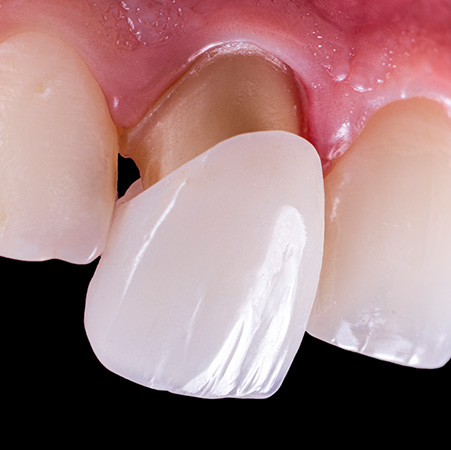How Are Dental Crowns Applied?
Dental crowns are, as mentioned above, basically caps protecting the tooth underneath. The question that arises naturally is how they are applied. After all, any tooth is somewhat unique. The process to apply a dental crown then is pretty labour-intensive but also a routine procedure for any St. Laurent, Manor Park & Vanier crowns dentist.
The crowns dentist will begin by anaesthetising the tooth in question. Once the anaesthesia works, the dentist will rid the tooth of any decay and “trim it down.” This is done to ensure that the tooth with the added crown will fit into the exact same spot and take up as much space as the natural tooth on its own.
Once your tooth has been prepared, an imprint will be taken of it. This can occur either manually or digitally and it is done to ensure that the crown will fit perfectly onto your tooth. A dental laboratory will manufacture the crown from these imprints. The colour of your crown will also be matched to that of its surrounding teeth to ensure it looks as natural as possible.
Once the crown is ready, your dentist will apply the crown to your tooth and transfix it with dental cement.
When Are Dental Crowns Used?
The purpose of each dental crown is the same: to protect the tooth that lies underneath. However, there are various reasons why a dental crown may be applied. For example:
- to anchor and stabilise a dental bridge
- to cover a (severely) damaged tooth
- to protect a root canal
Dental crowns St. Laurent, Manor Park & Vanier are an affordable and long-lasting solution for any of these issues. Further, dental crowns do not alter your physical appearance. Thanks to modern technology, your dental crown can usually be made from an enamel-like ceramic material that can also be colour-matched to fit into your smile.
For more information, and to find out whether a dental crown may be a good solution for you, contact our crowns dentist today!
Dental Crowns Care: How To
Like most dental procedures, like fillings or implants, dental crowns require certain aftercare. As the protected tooth underneath the crown may be temperature-sensitive for a while, it is best to avoid hot and cold beverages immediately after the procedure. This sensitivity usually subsides within 24 hours.
A little aching and discomfort in the first few days is also not unusual. After all, applying a dental crown is an invasive procedure that directly affects the tooth. However, should the pain persist or worsen over time, it is best to contact our crowns dentist right away and make an appointment. In terms of cleaning, the crown can be taken care of just like your other, natural teeth. Regular brushing and flossing is required to ensure that the tooth below the cap stays strong and bad bacteria do not collect around or underneath the cap.
Contact Us Today For More Information On Dental Crowns
Whether you have a tooth that constantly causes you problems, think about getting a dental bridge, or want to get more information on dental crowns – we are here to help you with all questions and concerns regarding dental crowns. Simply contact us directly and we will gladly help you with all your inquiries regarding dental crowns!


